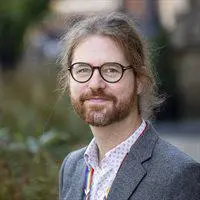
Connect
About
Raphael is a political anthropologist of urban India with degrees in political science, area studies and a PhD in sociology / social anthropology. Before joining the Department of Methodology at the LSE, he worked as Lecturer in Social Anthropology & Development Studies at King's College London and before that as postdoctoral researcher at the Max Planck Institute for the Study of Religious and Ethnic Diversity in Göttingen. Besides his departmental work, he acts as Development & Training Lead for the LSE-ESRC Doctoral Training Partnership, supporting students and policy development across the school. Beyond these roles at the LSE, he is one of the associate editors of the Journal of South Asian Development and has for many years served as reviews editor of Contemporary South Asia. Last not least, he is a Senior Fellow of the Higher Education Academy and is a mentor and assessor on their professional development recognition scheme.
He is also a local rep and caseworker for the University and College Union and for the 2025/26 academic year the LSE branch secretary.
Research Interests
While Raphael’s current role is focused on teaching and educational leadership, his take on methodology is based in over a decade of mixed-method and ethnographic research experience. He studied religious politics, the political economy of corruption, masculine aspirations and urban belonging in North India, building on ethnographic, statistical and spatial data generated in long-term fieldwork among the country's large and diverse Muslim population; most of his ethnography was based in the city of Lucknow, often seen as a 'space with too much history'.
While much work on religion and politics in India aims to understand Hindu-Muslim riots, engineered by politicians who exploit communal prejudice for electoral gain, and in the process tends to treat Muslim Indians as a monolithic block, Raphael's ethnographic research pays closer attention to religio-political dynamics within religious communities and asks how these intersect with growing aspirations for 'development'. From 2021 to 2023, Raphael was also Co-Investigator on a large network grant on 'Muslims in a time of Hindu majoritarianism' funded by the Luce Foundation (PIs Christophe Jaffrelot and Bernard Haykel), where he led the 'ghettoization' cluster with six team members across India to further investigate Muslims' spatial politics through a multi-sited and digital ethnography of resistance, adaptation and co-option.
More details on his research trajectory, the contributions of research students whom he supervised, and his publications can be found at https://www.raphael-susewind.de.